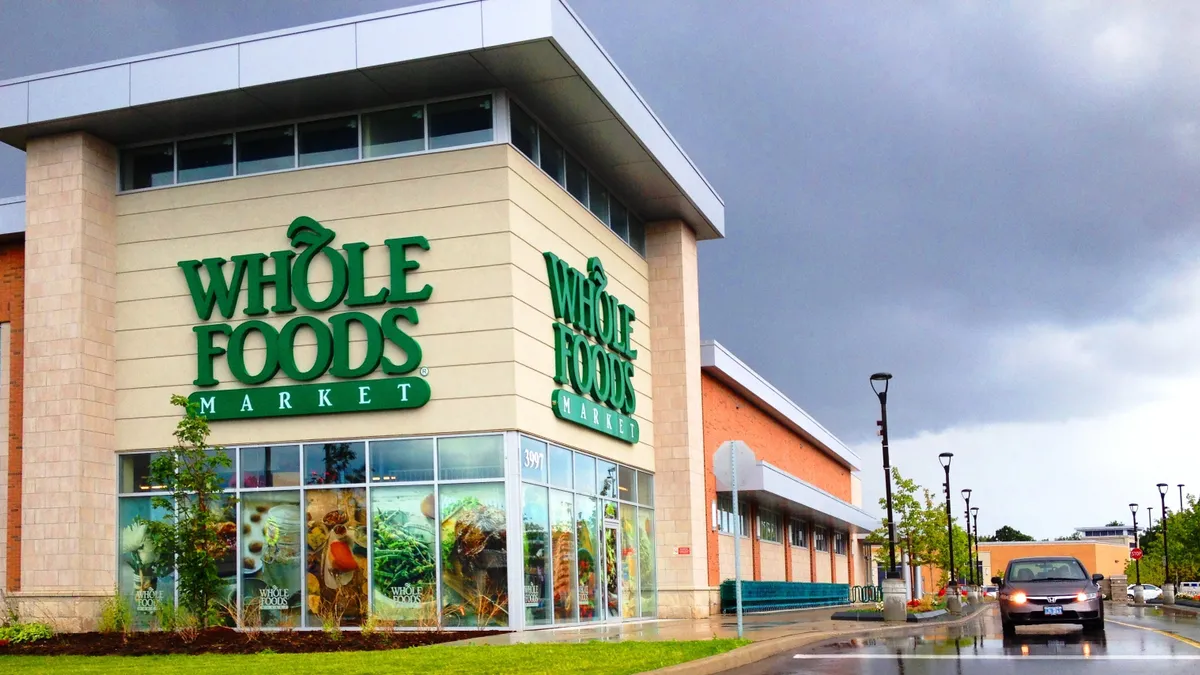Dive Brief:
-
Whole Foods shoppers have been reporting empty shelves and supply shortages in recent weeks, Business Insider reported. In response, the grocer told Business Insider the shortages are due to unexpected supplier issues.
-
According to the report, Whole Foods said nationwide shortages of private label grains, beans, lentils and rice is a result of a supplier closing unexpectedly. The retailer also said weather-related issues have affected the availability of California lettuce.
- Shoppers in New York and Washington, D.C., have said the shortages began over a month ago. According to the Washington City Paper, other shoppers have witnessed shortages of produce including garlic, spinach and arugula in recent weeks.
Dive Insight:
While a sudden supplier closure explains recent product shortages, shoppers in locales from San Francisco to suburban Pennsylvania are skeptical that a supplier could be the sole cause of consistently bare shelves that have taken place for months.
One shopper reported she’s also seen a limited supply of milk, eggs and tofu, and Business Insider said it found inventory shortages in multiple categories including prepared foods, produce, juice and broth.
The supply issues are driving some shoppers away from Whole Foods and generating social media chatter, drawing negative publicity to the natural grocer. The company has been silent on social media regarding this issue.
Whole Foods told Business Insider it is working to stock shelves with branded alternatives, which should be available in stores "in the coming weeks." Finding a new supplier for private label rice, grains and beans could take months, the company said.
The last time Whole Foods faced backlash for empty shelves was early 2018, when customers reported bare shelves across meat, produce and grocery departments. The shortages then were the result of a new inventory management system that attempted to mitigate spoilage and excess product. The issue caused frustration among both shoppers and employees, many of which blamed Amazon's acquisition of the retailer.
Concerns seemed to have tapered off through much of 2019 as Amazon focused on cutting prices at Whole Foods and drawing interest with Prime membership, but some have speculated that shortages and frustration among employees and customers is just a new normal at Whole Foods.













